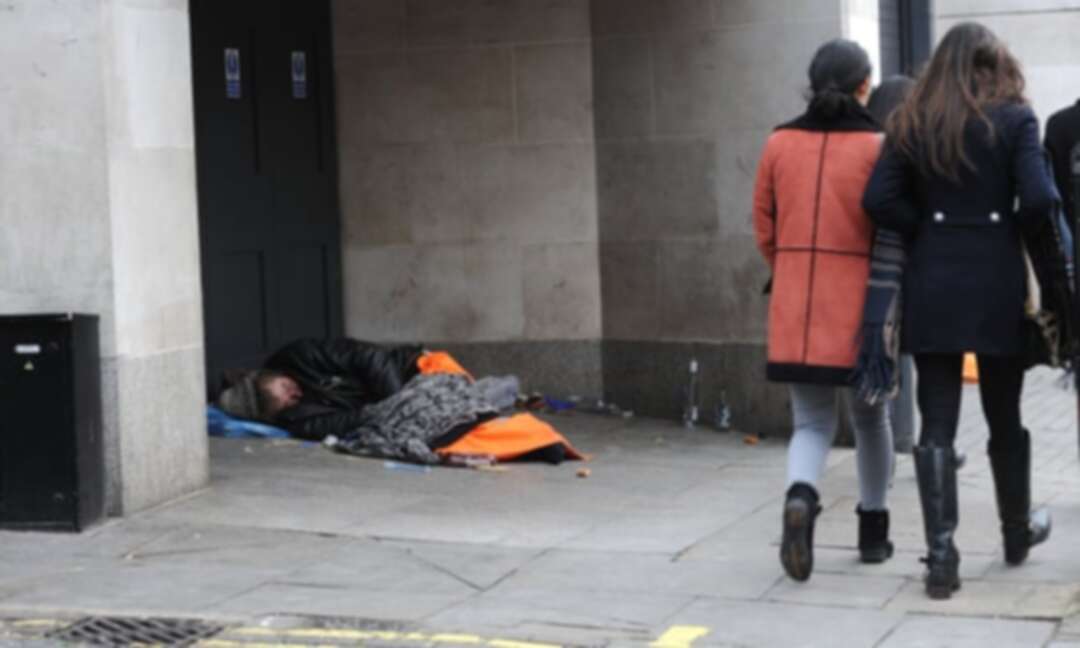-
Fixed universal credit cuts are unlawful, high court in UK rules

Victory for four former rough sleepers in Manchester left destitute after DWP deductions to pay court fines
A group of former rough sleepers who were left destitute after the Department for Work and Pensions automatically deducted a third of their universal credit allowance to pay off court fines have won a high court victory.
The department’s blanket deductions policy had left the four highly vulnerable individuals with £52 a week to live on and unable to meet the cost of food and heating or transport to job interviews and medical appointments.
The judge ruled the department was in breach of a law requiring benefits officials to use their discretion to ensure court fines were deducted from universal credit at a rate recognising claimants’ vulnerability and ability to repay.
The case was brought by the housing charity Shelter after it found that former rough sleepers who had moved into settled housing through its Manchester homelessness project were struggling to keep afloat financially because of the high level of deductions.
The department policy required deductions to be imposed at a fixed 30% rate from the monthly allowances of claimants who owed historical court fines – including those issued for begging under the 1824 Vagrancy Act – regardless of individual circumstances.
Shelter argued this put the four people at risk of returning to the streets. All had a long history of rough sleeping, and had variously suffered from substance abuse, mental illness and financial problems. All had received court fines in the past for criminal offences including fare evasion, public order offences and begging.
Mr Justice Kerr agreed that the fixed deductions policy ran contrary to 1992 law, which requires benefits officials to exercise discretion in the amount they deduct for court fine repayments, which can range from a minimum of 5% up to a maximum of 30%.
The ruling means claimants repaying historical court fines who are facing financial hardship – not just rough sleepers – can now ask the the work and pensions department to lower the level of deductions. About 120,000 universal credit claimants are believed to be repaying court fines through deductions.
The department, which argued that the policy was not illegal because claimants could always go to court to seek reduction in the amounts payable, has been granted leave to appeal against the ruling.
Shelter’s chief executive, Polly Neate, welcomed the ruling: “The judge has made it clear that hitting people who are already very poor with such a high repayment rate is counterproductive. We hope the DWP will now change its policy to allow people to pay their fines back at a level which is fair.
People who’ve lived through the trauma of sleeping rough need a chance to rebuild their lives and feel part of society again.”
The claim was heard together with a case brought by Hackney Community Law Centre involving a claimant (not a former rough sleeper) with multiple long-term health issues who was left unable to properly feed himself due to the deductions policy.
Beya Rivers, a solicitor at the law centre, said: “It is inhumane for universal credit recipients to be put in a position by the government where they are forced to survive without basic necessities, often choosing between essentials such as food and electricity.”
A work and pensions department spokesman said: “We are carefully considering the judgment and our next steps.”
source: Patrick Butler
Levant
You May Also Like
Popular Posts
Caricature
BENEFIT Sponsors BuildHer...
- April 23, 2025
BENEFIT, the Kingdom’s innovator and leading company in Fintech and electronic financial transactions service, has sponsored the BuildHer CityHack 2025 Hackathon, a two-day event spearheaded by the College of Engineering and Technology at the Royal University for Women (RUW).
Aimed at secondary school students, the event brought together a distinguished group of academic professionals and technology experts to mentor and inspire young participants.
More than 100 high school students from across the Kingdom of Bahrain took part in the hackathon, which featured an intensive programme of training workshops and hands-on sessions. These activities were tailored to enhance participants’ critical thinking, collaborative problem-solving, and team-building capabilities, while also encouraging the development of practical and sustainable solutions to contemporary challenges using modern technological tools.
BENEFIT’s Chief Executive Mr. Abdulwahed AlJanahi, commented: “Our support for this educational hackathon reflects our long-term strategic vision to nurture the talents of emerging national youth and empower the next generation of accomplished female leaders in technology. By fostering creativity and innovation, we aim to contribute meaningfully to Bahrain’s comprehensive development goals and align with the aspirations outlined in the Kingdom’s Vision 2030—an ambition in which BENEFIT plays a central role.”
Professor Riyadh Yousif Hamzah, President of the Royal University for Women, commented: “This initiative reflects our commitment to advancing women in STEM fields. We're cultivating a generation of creative, solution-driven female leaders who will drive national development. Our partnership with BENEFIT exemplifies the powerful synergy between academia and private sector in supporting educational innovation.”
Hanan Abdulla Hasan, Senior Manager, PR & Communication at BENEFIT, said: “We are honoured to collaborate with RUW in supporting this remarkable technology-focused event. It highlights our commitment to social responsibility, and our ongoing efforts to enhance the digital and innovation capabilities of young Bahraini women and foster their ability to harness technological tools in the service of a smarter, more sustainable future.”
For his part, Dr. Humam ElAgha, Acting Dean of the College of Engineering and Technology at the University, said: “BuildHer CityHack 2025 embodies our hands-on approach to education. By tackling real-world problems through creative thinking and sustainable solutions, we're preparing women to thrive in the knowledge economy – a cornerstone of the University's vision.”
opinion
Report
ads
Newsletter
Subscribe to our mailing list to get the new updates!






















